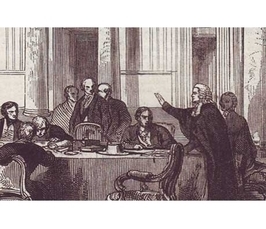Catharine MacMillan: The Judicial Committee of the Privy Council
Frankfurter Rechtshistorische Abendgespräche
- Date: Nov 2, 2016
- Time: 06:00 PM (Local Time Germany)
- Speaker: Catharine MacMillan
- King’s College London
- Topic: The Judicial Committee of the Privy Council: Law and the British Empire
- Location: MPIeR
- Room: Z 01
